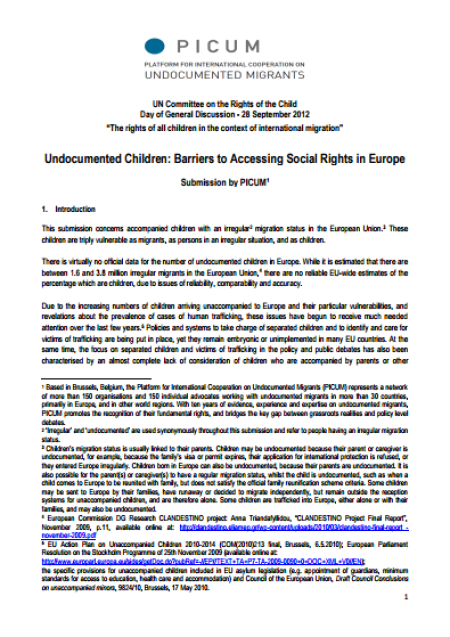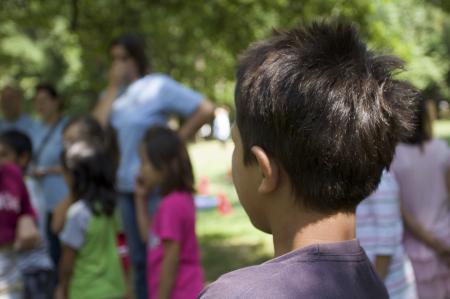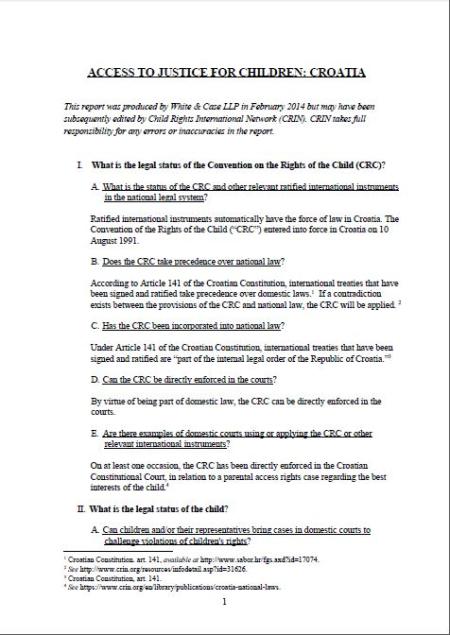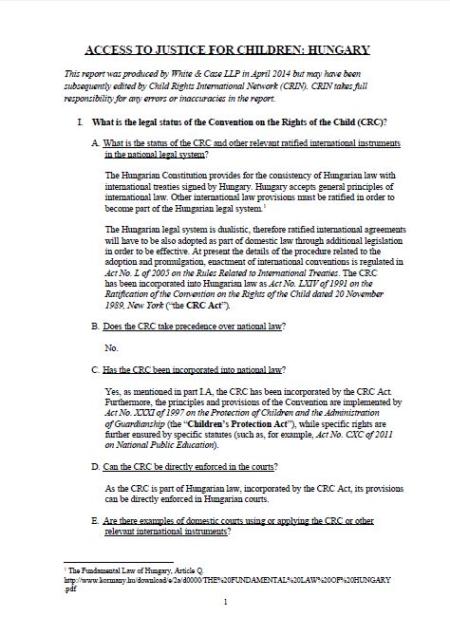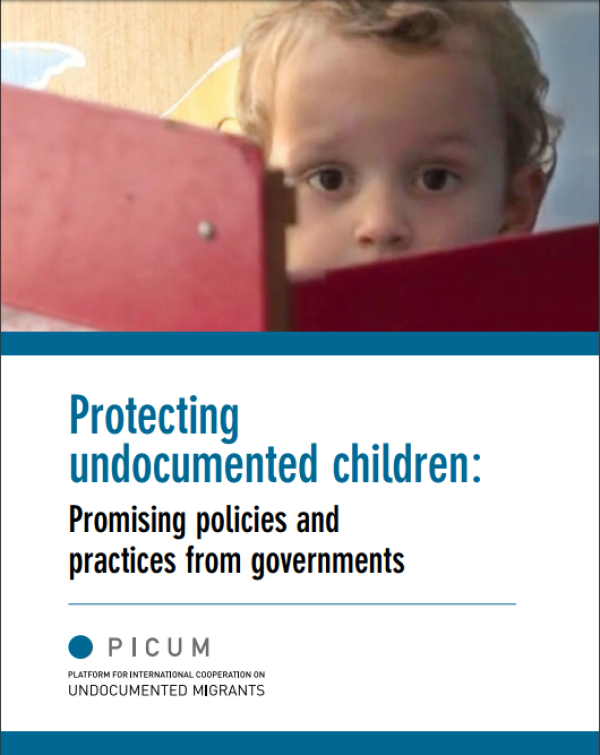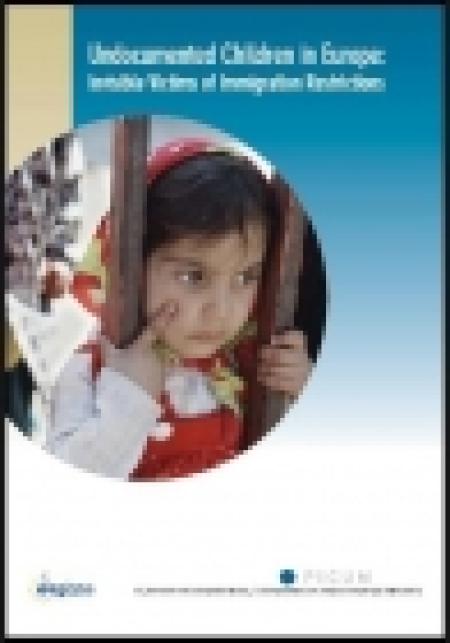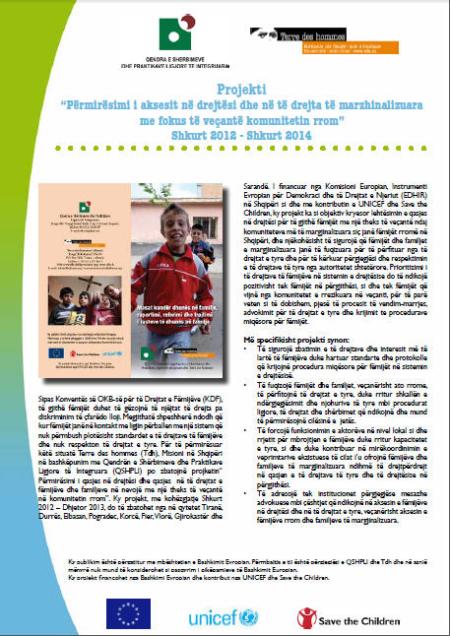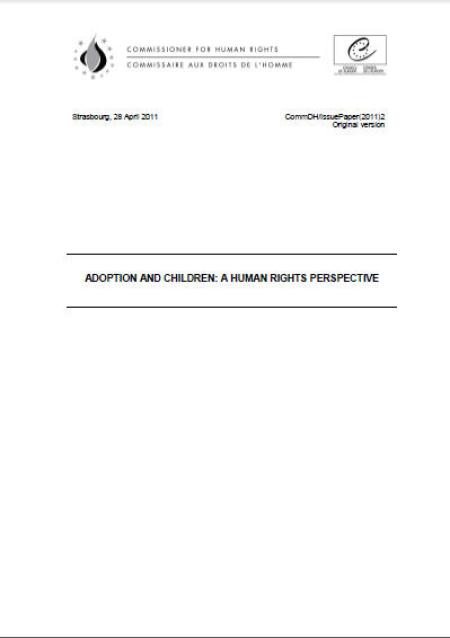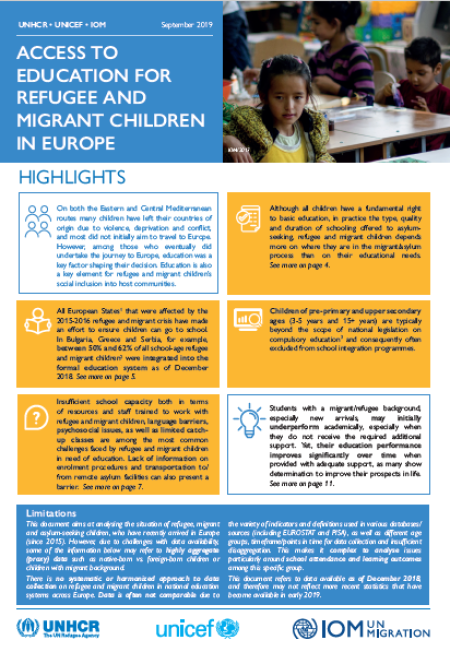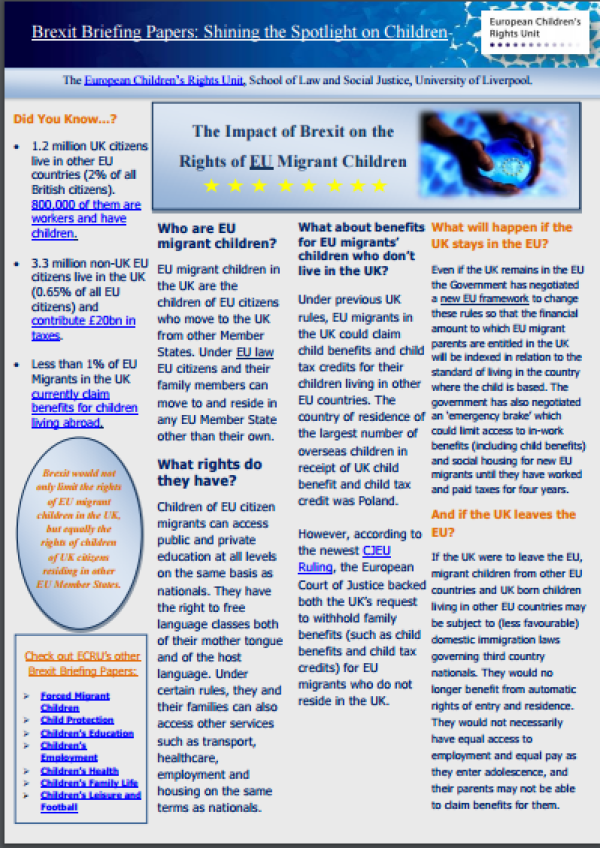
This document concerns accompanied children with an irregular migration status in the European Union. These children are triply vulnerable as migrants, as persons in an irregular situation, and as children.
There is virtually no official data for the number of undocumented children in Europe. While it is estimated that there are between 1.6 and 3.8 million irregular migrants in the European Union, there are no reliable EU-wide estimates of the percentage which are children, due to issues of reliability, comparability and accuracy.
Due to the increasing numbers of children arriving unaccompanied to Europe and their particular vulnerabilities, and revelations about the prevalence of cases of human trafficking, these issues have begun to receive much needed attention over the last few years. Policies and systems to take charge of separated children and to identify and care for victims of trafficking are being put in place, yet they remain embryonic or unimplemented in many EU countries. At the same time, the focus on separated children and victims of trafficking in the policy and public debates has also been characterised by an almost complete lack of consideration of children who are accompanied by parents or other caregivers. There is a concerning lack of visibility of these children, and lack of attention to how they are affected by policies on irregular migration.
Despite the numerous explicit and legally binding international and regional instruments that guarantee children access to their civil and political, economic, social and cultural rights, undocumented children still face numerous barriers to exercising these rights in the European Union. National legislation often falls short of these standards, and even when legal entitlements exist, practical barriers often make the laws ineffective. This submission provides a brief analysis of the main obstacles faced by undocumented children in accessing services in three areas which are critical to their development - education, health care and housing - and is followed by policy recommendations.


